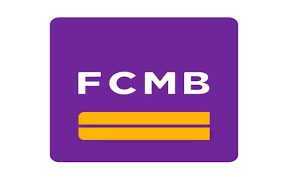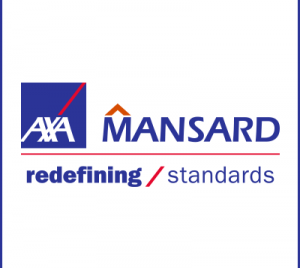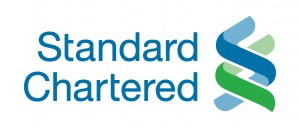Is Your Strategic Vision Visionary or Boring? By Jeffrey Baumgartner

Probably the most important sentence your company ever puts to paper is your strategic vision statement. It defines your organisation, your goals and the paths you take. A bold, visionary statement is the first step in establishing your firm as a bold, visionary leader. A mediocre statement keeps you on a path of mediocrity, trailing behind the visionary leaders. A lack of any vision leaves it to your customers and employees to assign a mediocre vision statement to your company. And they will.
Whether yours is a global organization or a one-woman business operating out of Poughkeepsie, your strategic vision statement should be but a few words, but those words are vitally important to where your company is going and how it is going to get there. Think about the leading company or two in any field and you probably have a good idea of their strategic visions. Think about Apple, Walmart, Facebook, Versace, Porsche, Victoria’s Secret.
In short, success for your business starts with a strategic vision statement and then flows through communication to your employees, customers, future customers, business partners, other stakeholders and your community.
Moving Goal
A vision statement is essentially a moving goal that you aspire to chase after. The moving bit is important. You do not ever want actually to achieve the goal defined in your vision. If your vision is to sell 100 coffee mugs by next Wednesday, you’ll be lost come Thursday. On the other hand if your vision is to create unique, designer coffee mugs in limited batches of 100 which will only be sold for one week, you’ve got something that will keep you busy indefinitely.
Avoid Being Best Like the Plague
Amazingly, in view of the critical importance of a strategic vision statement, a large number of companies either have no defined vision or a vague, meaningless one. The worst thing you can do in crafting a strategic vision statement is to use the word “best” − it is almost certainly an indication of mediocrity and lack of vision. To understand why, the next time you are with a group of friends, ask everyone who makes the best pizza (or any popular food) in your city. The chances are you will get several different answers and a few disagreements. That’s because best is a meaningless word unless precisely defined − and even then it is dubious.
Or, look at it this way, you are visiting a new city and see three pizzerias. One claims to be the best pizzeria. The other makes no claim and the third claims to be a family owned restaurant specialising in novel pizzas made with fresh locally sourced ingredients. Which is likely to get your business?
Be Different
No company ever became the market leader by being the same as everyone else in the field. Think about it. In order to have a field in which everyone is the same, there had to have been a visionary who defined normal behaviour in that field.
Your strategic vision statement should be unique. It should carve out your niche in the market place and allow you to own that niche. That can be scary. For most organisations, like people, it feels safer to follow the leader than to go off in your own direction. But you will know you have succeeded when you look back and find other companies following your lead.
- Published in Blog
FCMB Restates Commitment to Tourism, Felicitates with Ijebuland on Ojude Oba Festival

PRESS RELEASE
First City Monument Bank (FCMB) Limited has reiterated its commitment to support activities that promote and add value to Nigeria’s culture and heritage which are alsocapable of boosting tourism and other non-oil sectorsin line with the Federal government’s ongoing drive to diversify the country’s economy. According to the Bank, this is the rationale behind its decade long support for the annual Ojude Oba Festival, a carnival-like celebration of the traditional, cultural, spiritual, economic and other accomplishments of the people of Ijebuland in Ogun state. Consequently, FCMB has assured its stakeholders that its participation in this year’s Festival, which holds in Ijebu-Ode on September 3, 2017 will be grand, exciting and rewarding for the thousands of people within and outside the country that would grace the fiesta. The Group Head, Corporate Affairs of FCMB, Mr. Diran Olojo, gave the assurance at a press conference held on August 22, 2017 at Ijebu Ode, to kick-off activities for the Festival. FCMB has over the years been a major sponsor of the Ojude Oba Festival and has continued to play a significant role in ensuring its success.
The Ojude Oba (which in Ijebu dialect means, the king’s fore-court or frontage) is a major festival in Nigeria that began over 100 years ago. It brings together all sons and daughters of Ijebuland in Nigeria and diaspora. During the Festival, various age groups (popularly known as the Regberegbes), indigenes, their friends and associates from far and near – all in their colourful costumes and riding on horses – throng the palace of the Awujale and Paramount Ruler of Ijebuland to pay homage to him amidst prayers, songs, tributes and other fun-filled activities. Apart from serving as a distinctive platform to reconnect with the values that sustain the town’s rich history, heritage and industrious uniqueness, the festival also goes a long way to boost business activities, tourism and the general hospitality sector in the area.
In a goodwill message to the Awujale of Ijebuland, Oba (Dr.) Sikiru Adetona, the Group Chief Executive of FCMB Group Plc, Mr. Ladi Balogun, congratulated the monarch, sons and daughters of Ijebuland for promoting the values of the ancient city through the festival and other socio-economic activities. He stated that FCMB is committed to the longevity of the Ojude Oba Festival and the economic prosperity of Ijebuland, just as he urged the people to see the Festival as a fulcrum to inspire individuals and businesses for heightened creativity and increased productivity. According to him, ‘’over the years, the Ojude Oba Festival has grown to become the most popular gathering of the people of Ijebuland and a significant tourist attraction. With her large diaspora population, talented artists and rich cultural diversity, Nigeria is well positioned to reap the opportunities that globalisation presents to showcase her artistry and festivals, whilst bringing increased economic activity to communities that host such, such as Ijebu Ode. As we seek to diversify our economy, tourism and culture represent a low hanging fruit that must not go untapped’’.
In the same vein, the Founder of FCMB Group who is also the the Olori Omo-Oba Akile Ijebu, Otunba (Dr.) Michael Olasubomi Balogun, CON, in a goodwill message to the paramount ruler of Ijebuland expressed his gratitude to the Awujale, especially the paramount ruler’s selflessness in attending to the different requests and yearnings of the people of Ijebuland. In a message delivered on his behalf by Mr. Diran Olojo, the Bank’s Head of Corporate Affairs, Otunba Balogun commended Oba Adetona for his distinguished and exemplary leadership over the years. ‘’I for one continue to be proud as your Olori Omo-Oba to lead the way in showing our appreciation by being very close to you and showing unflinching loyalty. Let me thank you and the good Lord, our Maker that you have been unrelenting in showing that you appreciate my regular homage and tribute to you. I can say without fear of anybody gainsaying it that from year to year, on a daily basis, the appreciation of all Ijebus for the way you extend yourself to their different requests and yearnings, is such that the annual paying of homage, is not just the only occasion we would want to be showing our appreciation because you continuously earn our affection and our adulation’’, Otunba Balogun emphasised. while congratulating the entire indigenes of Ijebuland, the FCMB Founder also prayed that the monarch’s reign would continue to bring joy and prosperity in abundance to the entire Ijebu race, at home and in the diaspora.
First City Monument Bank (FCMB) is a member of FCMB Group Plc, which is one of the leading financial services institutions in Nigeria with subsidiaries that are market leaders in their respective segments. Having successfully transformed to a retail and commercial banking-led group, FCMB expects to continue to distinguish itself by delivering exceptional services, while enhancing the growth and achievement of the personal and business aspirations of its customers.
Actually, Criticizing Ideas Is Good for Creativity By Jeffrey Baumgartner

Ever since it was first invented by Alex Osborn in the 1950s or so, the fundamental rule of brainstorming, and just about every creative thinking method, has been, “Though shalt not criticise ideas.”
Mr Osborn never made it entirely clear why it is so bad to criticise ideas, though it is implied that you might hurt people’s feelings, inhibit creativity and possibly emotionally scar someone for life. Clearly then it is best to welcome all ideas with compliments, even if they are stupid, and never, ever criticise an idea. At least, that was the assumption
No one dared question this assumption for more than half a century − until 2008 when a couple of bright sparks at Berkeley University, Matthew Feinberg and Charlan Nemeth*, decided it was time to ask some questions. They conducted a study in which they put volunteers into teams and divided those teams into three three groups. One group followed traditional brainstorming rules. The second group were also told to follow brainstorming protocol with the exception that they were actively encouraged to criticise ideas. The third group was the control group. They were just told to come up with ideas any way they wanted to do.
So, what happened?
The control group’s outcome was the least creative. Only moderately better were the traditional brainstormers. By far the most creative group was the group that had been encouraged to criticise ideas.
This surprised a lot of people, especially people involved in creative facilitation. Their fundamental rule had been proven to be, well, completely wrong. Many professional brainstorming facilitators simply denied the results rather than accept their method might be flawed.
Others tried brainstorming and other ideation methods in which we actively encourage criticism during the ideation. I certainly did. And, I found it was surprisingly effective. In my experience, results are far better than when criticism is forbidden.
I believe there are several reasons why this is so.
- Blindly praising every idea encourages mediocrity. Why be bold when your boring ideas get praise?
- Criticising an idea starts a conversation about the idea as well as your needs, restrictions, assumptions and more. When ideas cannot be criticised, you cannot delve into them. You cannot really discuss them. You certainly cannot build upon them until you’ve discovered the weaknesses that need improving.
- Criticising an idea gives it importance. When all ideas are “great” the compliment becomes meaningless. When someone stops to listen to an idea, thinks about it and addresses its weaknesses, she is saying, “this idea has meaning to me. I want to talk about it.”
- Criticising ideas gives guidance. If an idea is criticised, debated and rightly found not to be viable, this tells people to think in a new direction.
No Downward Spiral
Brainstorm fans often worry that allowing criticism of ideas will lead to a downward spiral where everyone is negative and no new ideas are developed. In my experience, this does not happen. I believe it is because when a group of people in an organisation are trying to build ideas, they have a common goal in building a relevant idea that achieves their needs. Bring relentlessly critical will not get them to their goal. Being productively critical will.
Three Rules
In anticonventional thinking (ACT), an alternative to brainstorming that encourages criticism, there are three rules.
- Always criticise boring, conventional ideas. You do not want them.
- Criticises the idea is OK; criticising the person is not OK.
- Once you have criticised and idea, shut up and let the originator of the idea, or anyone else, defend it.
I have found these rules, together with encouragement to criticise ideas, ensures that critical discussions are meaningful and feelings are not hurt. Ironically, several people have told me after ACT sessions that criticism of ideas makes them feel freer and less constricted than when they cannot criticise ideas.
Go On, Give It a Try
If you run brainstorms and have always adhered to Mr Osborn’s rule that you must withhold criticism, I suggest you experiment with ideation that welcomes crticism and see what happens. Mr Osborn surely would not mind. After all, he was a fan of creativity and trying out new ideas. Moreover, I believe you will be pleasantly surprised by the results.
- Published in Blog
A.M. BEST UPGRADES RATING OF AXA MANSARD INSURANCE PLC TO BBB-
AXA Mansard Insurance plc. has today announced the upgrade of its rating by the global insurance rating agency, A.M. Best, from “bb+” (Fair) to “bbb-” (Good) for the Issuer Credit Rating (ICR) and “B” (Fair) to “B+” (Good) for Financial Strength Rating (FSR). The rating agency also assigned a positive outlook to the rating.
A.M. Best in its press release stated that “the positive outlook reflects AXA Mansard’s consistent excellent underwriting performance, as demonstrated by the five-year average non-life combined ratio of 83%”. The agency further stated that “A.M. Best expects AXA Mansard’s underwriting earnings to remain strong, supported by its solid competitive position as a top five composite Insurer in Nigeria, the benefit of its wide and expanding distribution network, as well as effective risk management”.
This rating remains the highest rating received from A.M. Best by any Nigerian Insurer and second highest received by any Insurer in sub-Saharan Africa. AXA Mansard Insurance remains an outstanding Insurer with strong financial strength and excellent underwriting capabilities. The organization has demonstrated this over the years through its superior financial and technical competencies.
In the first half of 2015, AXA Mansard reported a 7% increase in Net Premium Income, 18% growth in Profit Before Tax, whilst sustaining significant growth in the Health Insurance and Investment segments. AXA Mansard has achieved measurable results through the effective implementation of sound risk management principles which reflect in the Company’s recognition at the recent Nigerian Risk Awards. The company has also received several other awards including the Award for Promptness in Claims Settlement by LCCI and was also recently adjudged one of the top 50 Brands in Nigeria.
Commenting on the rating, Mr. Tosin Runsewe (Chief Client Officer) said “We are delighted that our quest to build a world class insurance company with global expertise and local competence has not gone unnoticed. The upgrade of our A.M.Best rating to an amazing BBB- clearly emphasizes our leading position and further validates our capacity to provide superior security for our discerning customers, both local and multinational”.
A.M. Best Company is a global credit rating agency with over 100 years history of providing quantitative and qualitative assessment for Insurance companies, with its “Best’s Credit Rating Methodology” used to determine the financial strength and creditworthiness of Insurance companies. A.M Best is the world’s oldest and most authoritative insurance rating and information source. For more information, visit www.ambest.com.
Inclusion of renminbi into IMF’s Special Drawing Rights basket
The official recognition of the renminbi as a global reserve currency is more than just an important milestone for the Chinese currency; it has significant, game-changing effects on the rest of the world’s markets, Standard Chartered said.
Within slightly over a decade, China’s extensive reforms have propelled the renminbi from being non-existent on the world stage to becoming a currency in the International Monetary Fund’s (IMF) Special Drawing Rights (SDR) basket.
Bill Winters, Group Chief Executive, Standard Chartered, said: “The inclusion of renminbi into the SDR speaks volumes about how much China has accomplished since it embarked on its reforms in 2004. The speed of development has been striking and today marks the beginning of another new chapter.”
Benjamin Hung, Standard Chartered’s Greater China and North Asia Chief Executive Officer, also noted: “We are expecting further steps to include flexible cross-border investments and remittance, expansion of free trade zones and greater opening up of capital account. We are confident that China will remain committed in promoting its currency in a steadfast and well-paced manner, on track to meet our forecast of becoming a G3 currency by 2020.
Benjamin Hung added: “In the interim, there will inevitably be uncertainties and volatilities across financial markets, be it greater two-way USD-CNY variability or financial flows as international investors and reserve managers adjust their portfolio over time. It is important to brace ourselves for these developments as it takes time for market participants to rebalance against a new reserve currency, which will eventually bring positive changes to global financial markets across FX, rates, fixed-income and other asset classes.”
After the SDR review, Standard Chartered expects a gradual pick-up of diversification inflows into renminbi assets from international investors and reserves managers, of which the latter would be a critical underlying support for the CNY in the coming years. Global central banks may reallocate 1 per cent of their reserve investments into Renminbi assets annually. Standard Chartered expects inflows of US$85 billion-US$125 billion from global central banks in 2016, with at least 5 per cent of global reserves being denominated in renminbi by end-2020.
Central banks are likely to favour products such as renminbi bonds issued by the Chinese government, Policy Banks, high quality corporate bonds and Supranationals; and at the shorter-end of the curves, T-bills and bank deposits. Standard Chartered expects rising usage of the renminbi by corporates, financial institutions, and investors alike. From trade to investment to now becoming a global reserve currency, the renminbi has embarked on an irreversible journey.
AXA MANSARD SPONSORS WEST AFRICAN COLLEGE OF SURGEONS’ (WACS) COMMUNITY OUTREACH PROGRAM
In furtherance of its commitment towards the provision of quality healthcare to Nigerians of diverse socio-economic backgrounds, AXA Mansard co-sponsored the Ibadan Community Outreach Program, organized by the West African College of Surgeons (WACS).
The program was a 4-day community outreach organized by the West African College of Surgeons (WACS) and the Oyo State Government at the General Hospital, Aremo, Ibadan from Monday, November 23 to Thursday November 26. The College of Medicine, University of Ibadan, the University College Hospital, Ibadan and the Association of General and Private Medical Practitioners of Nigeria (Oyo State) actively participated in the program, which comprised health education talks, health screening and provision of intermediate surgical procedures.
Free medical services were provided for over 1700 cases, including general health checks and screening, urological diseases, obstetrics and gynecology diseases, primary dental and ophthalmological care as well as provision of eye glasses amongst others.
Mr. Tope Adeniyi, the Chief Executive Officer of AXA Mansard Health Limited commented that this initiative is part of AXA Mansard’s contribution towards improved health care delivery to Nigerians.
Professor Olapade Olaopa, Chairman of the Local Organising Committee, representing the Chairman, West African College of Surgeons Outreach Program, thanked AXA Mansard on behalf of the President and Council of the WACS for the continuous support towards the actualization of the goal of the committee which is to improve the overall health of members of the public and lead everyone to a better and healthier life.
Establish Expertise Inside Your Company
In a competitive marketplace, developing a reputation as an expert is one of the best forms of career insurance. Having a blue-chip personal brand is powerful for international thought leaders, who can leverage it to command exorbitant speaking fees. But it’s also helpful for professionals who work inside corporations, where a great reputation can bring coveted promotions and opportunities. Here’s how you can become recognized for your expertise inside your company.
First of all, it’s important to recognize that you don’t have to start out as a worldwide expert. Too many people discount their value. You can coach others on writing better business memos even if you’re not Shakespeare, or lead an office running group even if you’re not Usain Bolt.
Michael Leckie was a vice president of human resources for a prominent research company when he developed an interest in coaching. Although the subject was related to his job, it wasn’t part of his actual responsibilities—he simply began studying it because he wanted to. He started out as a novice, compared to worldwide authorities, but he quickly grew to be one of the most knowledgeable people about talent development within his company. “When you start building your brand in a corporation, it’s a confined space,” he told me in an interview for my new book, Stand Out. “You don’t need to be the best in the world; you just need to be the best one there. You can be a big fish in a little pond, and if you’re the biggest fish in that environment, you get bigger and can then start to do things outside the organization.”
In these early stages, it’s important to be clear about what you know and what you don’t. If you try to prematurely position yourself as an expert who can compete with industry giants, you risk losing credibility when you’re faced with a question or challenge you’re unsure about. But if you’re honest about where you are in the process – experienced with some facets and still learning others – then others are likely to respect you for your superior knowledge and not hold it against you if you don’t know everything.
As your profile grows, it’s also important to ensure that your company understands the value of your public brand. This is especially important if, like Leckie, you’re cultivating expertise on a subject that isn’t part of your core responsibilities. “My world is [the firm], so I need to have my brand aligned to what matters to them,” says Leckie. Developing his coaching brand began to raise Leckie’s professional profile in general, which eventually to led to an invitation to give a keynote talk for a client’s conference of technology leaders. The keynote was an exciting opportunity for him, but his superiors could have viewed it with suspicion (Why is he getting all this attention? Why isn’t he concentrating on his real job?) if he hadn’t taken the time to show them how it was relevant to the company’s business objectives.
“With outside things, you have to make sure you’re explaining them [in terms of] what matters in the organization,” said Leckie. “Otherwise, they start to look, to some, like a distraction.” He didn’t assume his boss’s boss would understand why it was important for him to speak at the conference – rather, Leckie explicitly articulated the keynote’s business benefits to him. “What he’ll be excited about is great interactions with the client,” Leckie said, “and that I’m out there developing business and increasing the relationship they have with us.”
Finally, it’s important to recognize when it’s time to expand what you’re known for strategically. “Sometimes your brand is more happenstance than thoughtful,” says Leckie. “It may be about things you like, but it’s not necessarily leading you where you want to be moving toward.” Leckie realized he’d been so successful at building his expert reputation around coaching and talent development that those skills — even though they were valuable for an HR leader — were beginning to overshadow others that were deemed more critical inside his company. “My brand got established and it opened the door, but it also began to shut other doors. It became clear to me that while I was really good at building and driving a team that got great business results, when people were talking about me, it wasn’t about business results; it was about the more unique elements of my brand [such as coaching].”
That’s why he decided to make coaching a “sub-brand.” In other words, he didn’t abandon it, but he started emphasizing it less in favor of talking about his ability to drive the bottom line. “It’s giving people a language of how to think about you subtly,” he says, by shifting the topics you discuss and by enlisting friendly ambassadors to highlight your relevant accomplishments. That’s been especially important to him as he’s risen in the ranks of his company and now holds a broader leadership role.
It’s slightly trickier for professionals to build a strong personal brand inside a company, as compared to entrepreneurs or other free agents. You have to balance the unique mix of your skills and interests with your company’s needs and sensibilities. But when done right, cultivating a brand as a “local expert” inside your company can enhance your professional reputation and ensure you’re valued the way you should be.
- Published in Blog, Uncategorized
AXA Mansard rated among Top 50 Brands in Nigeria
AXA Mansard Insurance continues to receive top ratings amongst other brands. AXA Mansard Insurance was rated among the Top 50 Brands in Nigeria by APT Brand International Limited.
Top 50 Brands in Nigeria is an annual selection of top brands in Nigeria. The award criteria include leadership structure, market acceptance, brand equity, product offerings, culture, quality service delivery and market performance.
The record is indeed significant for AXA Mansard Insurance as it is the only insurance company to receive this outstanding recognition along with other highly rated brands in the country.
The Chief Client Officer, Tosin Runsewe commented that “Our brand has grown over time and has become a symbol of our desire to keep evolving new ways of pleasing our customers. The value of our brand represents the value we place on our customers and serves as a hallmark of our brand promise to them to protect their assets, health and loved ones”.
Adding to this, the Group Head Strategy and Marketing, Kola Oni, says “We are delighted to receive this award for the second year in a row. The AXA Mansard brand is unique and this award is dedicated to our customers who have supported us over time even as they recognize and appreciate the AXA Mansard experience”.
Investing In Real Estate
Real estate is one of the world’s oldest investment activities. Humans have always required shelter, from the days of living in caves to the modern day real estate era of duplexes and sky scrapers. Real estate investing involves the purchase, ownership, management, rental and/or sale of real estate for profit. It has proven quite a profitable investment outlet for many investors, particularly over the medium to long term. However, contrary to the popular ‘safe as houses’ phrase, there are risks. It is important to note that real estate is an asset class with limited liquidity relative to other investment asset classes. Real estate is also capital intensive and highly cash flow dependent. If these three risk areas are not well managed, it is possible for an investor to fall into negative cash flow, and if this persists, the investor may be forced to sell the property at a loss or even go into insolvency. This is probably one of the primary causes of investment failure.

Investors profit from real estate in at least four different ways. Real estate appreciation occurs when the property becomes more valuable than when it was purchased due to a change in the real estate market, greater demand for the property, the land around the property becoming scarcer or busier or upgrades are put into your real estate investment to make it more attractive to potential buyers or leasing parties. Cash flow income arises from the rental streams that emanate from property such as an apartment building, office blocks, rental houses, etc. Real estate-related income is that generated by ‘specialists’ in the real estate industry such as real estate brokers, who make money through commissions from buying and selling property, or real estate management companies, who get to keep a percentage of rents in exchange for running the day-to-day operations of a property. Ancillary real estate income refers to that arising from mini-businesses within a bigger real estate investment that allows the investor to make money from a semi-captive collection of customers. A good example of this is vending machines within an office development.
There are different categories of real estate investment. Residential real estate investments are houses, town houses, apartment buildings, housing estates and vacation homes where an investor can expect rental income as well as exposure capital appreciation. Commercial real estate investments consist mostly of office buildings. This is quite an interesting area for investors as rental income from this type of investment is typically governed by long leases and offers a steady income. However, commercial real estate is often highly capital intensive. Industrial real estate consists of warehouses, petrol stations, factory-office multi-use property, factory–warehouse multi-use property, heavy manufacturing buildings, industrial parks, light manufacturing buildings and research and development parks. Retail real estate investments consist of shopping malls, strip malls and other retail storefronts. These are becoming ever more popular in Nigeria as the middle class expands and they offer investors attractive investment yields. Real Estate Investment Trusts, or REITs, trade like stocks and own a portfolio of underlying real estate or real estate mortgages. They work like a mutual fund, whereby the issuer of the REIT is a professional real estate investment company. They pool funds together from different investors and issue units in exchange. The funds are then used to create a property portfolio, which could consist of both residential and commercial property. A REIT must pay out 90% of its profits to investors to remain a trust.
As with any other investment decision, there are always key things to consider and look out for. They may make the difference between making and losing money. It is not an exhaustive list, but some of the key things are listed below:
(a) Location: This remains one of the foremost success factors in siting a real estate development. Certain locations have a better ability to ensure that real estate developments continue to attract patronage all through the business cycle and result in a greater ability to generate returns from the investment made. The location of a property investment is, of course, highly dependent upon the end use to which the property investment is to be deployed. The investment profile of a property located in a well-established location will be quite different from the same property in a run-down area.
(b) Infrastructural Development: Knowledge of new projects coming up in a neighbourhood such as access roads, a shopping mall or a rail line can significantly improve the value of the property. New roads and rail lines mean improved access to a certain area, thereby making the area more attractive to prospective tenants and investors. It can, however, also reduce the value of the property if, for instance, the new rail line runs close to the house, with the noise from the trains constituting a nuisance. The same applies to shopping malls or airports as they will bring with them new jobs and naturally employees looking for accommodation. Imagine the increase in value to an area previously without power supply and a contract is awarded to install and connect power lines to that area.
(c) Inflation Outlook: Inflation affects the value of money and investments. For an investment to give real returns it has to be above inflation. So a property returning 5% per annum in an economy where inflation is 10% cannot be said to be really profitable.
(d) Interest Rates: Most real estate investments are financed with debt. This occurs especially when leveraging occurs. In leveraging you pay for a property by contributing an amount as capital and funding the rest by a mortgage loan. In the event that interest rates rise, it means that your cost of funding will rise, thereby reducing your profit margin. It also makes it harder to sell the property as the potential buyer has to consider the elevated interest rate that he has to pay, thereby making the purchase less attractive. It might lead to the potential buyer asking for a discount to cover elevated interest rates.
(e) Population Growth: Growth in population means an increased need for housing. Not just for housing but also for service providers for the growing population. These service providers (bank branches, new stores etc.…) would have to acquire or rent property to operate from. So, population growth is an important factor in real estate investment. Also, migration to a particular area by the population would be another factor. In Lagos, Nigeria, the growing middle class seems to prefer living in the Lekki area, which has led to an increase in house prices and rent and also to the proliferation of shopping malls and supermarkets.
(f) Projected Economic Growth/Wellbeing: A growing economy with a growing middle and upper class means more demand for everything, from clothing to food and to property. A growing economy also means more investible income, with people looking to buy their first house or for other real estate investments. To put it in perspective, an economy in recession means job losses or cost cutting by firms. This means fewer people with investible income to acquire real estate. It also means that people who have lost their jobs will start to default on their mortgage or rent payments. This will eventually lead to forced sales of property, bearing in mind that forced sales are normally at a discount. The final outcome will be decline in real estate value.
(g) Government Policies: Policy shifts may affect the real estate market. It could be in terms of increased or reduced taxes or an effect of capital gains on property investments. The recent change in capital gains tax by the Chinese authorities led to a scramble by investors to sell off their property holdings to avoid paying the 20% capital gains tax. Other policies such as increase in lending rate for second or third home buyers also can affect the market.
Nigeria is a country of over 160 million people with a housing deficit of over 16 million housing units. Ordinarily, this would constitute a huge opportunity for investors as demand clearly outstrips supply. However, we have not seen this gap being met due to the high cost of real estate in Nigeria and the inability of the masses needing property to afford it. Urban migration has led to demand for housing units in cities such as Ibadan, Port Harcourt, Warri, Enugu, Benin, Lagos and Abuja, with the housing deficit still unmet. Factors such as the high cost of land, elevated interest and mortgage rates, and poor infrastructure continue to adversely impact upon the availability of affordable, quality housing stock within the country.
For portfolio investors, analysis has repeatedly shown that real estate enhances diversification and acts as an inflation hedge. A low correlation to both stock and bond returns suggests that real estate investments have the potential to lower overall portfolio risk while the ability to increase rental rates in times of high inflation affords the opportunity to maintain the real value of a portfolio. Real estate should therefore be a constituent of most investors’ portfolios. Whilst this may be difficult for the average investor to achieve on account of a relatively high investment outlay, professional investment managers are well positioned to package that exposure to investors through mutual funds and real estate investment trusts.
Allow us to tell you a short story…
Allow us to tell you a short story….
Mr. and Mrs. John Lagbaja built a modest 4 bedroom duplex in Ilupeju, Lagos. It took them six years and a great deal of sacrifice following the graduation of their youngest child from the university. Years of saving and investment paid off as they were finally able to move into their own home. It was a dream come true as excited friends and well-wishers attended the formal “house-warming” party. Prayers were offered by their parish priest and the small crowd assented to his prayers with cries of “Amen!”
Their first child who lived in the US sent them some money to furnish the new house as only new furniture and fittings would do. Mr. Lagbaja had prudently used the money to furnish and equip their new home with electronics, furniture, fittings, some security gadgets etc. only relinquishing control to his wife when it came to furnishing the kitchen! The Lagbajas were now landlords in Lagos.
7 months later on a warm February night, Mr. John Lagbaja who was the lighter sleeper woke up to sounds of faint shouting. He looked at his watch and it was 3am in the morning. What was going on? His phone started to ring. He grabbed it and it was then he detected the smell of smoke. The call was from a neighbour: “Sir! Fire! Fire! Your house is on fire!!” He quickly woke his wife and ran out of the house.
By 5am the fire had been put out through a combined effort of volunteers and the fire-fighting service but the damage caused by the fire was considerable. Two rooms with their toilet and bathrooms were burnt from floor to roof. The ceiling and roof of their bedroom was also affected. Black smoke had darkened the walls and the heat had melted the wiring and other parts. Water from the hoses had left every other thing soaking wet.
The Lagbajas wept and tried to console each other. How would they recover from this?
(Alternate ending)
As Mrs. Lagbaja wept her husband tried to console her, assuring her that everything would be fine. A few days later the Lagbajas received a cheque from AXA Mansard. His prudence had paid off.
The AXA Mansard Home Insurance plan protects you and your home against the risk of fire, flood, burglary etc. It does not matter whether you own a house, live in a rented apartment or you are sharing with friends or family, we offer you and your property and belongings protection from total loss.
For more information, please visit our website at www.axamansard.com, or email us at insurancecare@axamansard.com. You can also call us on 0700 AXA Mansard.
Let’s protect you.
AXA Mansard




